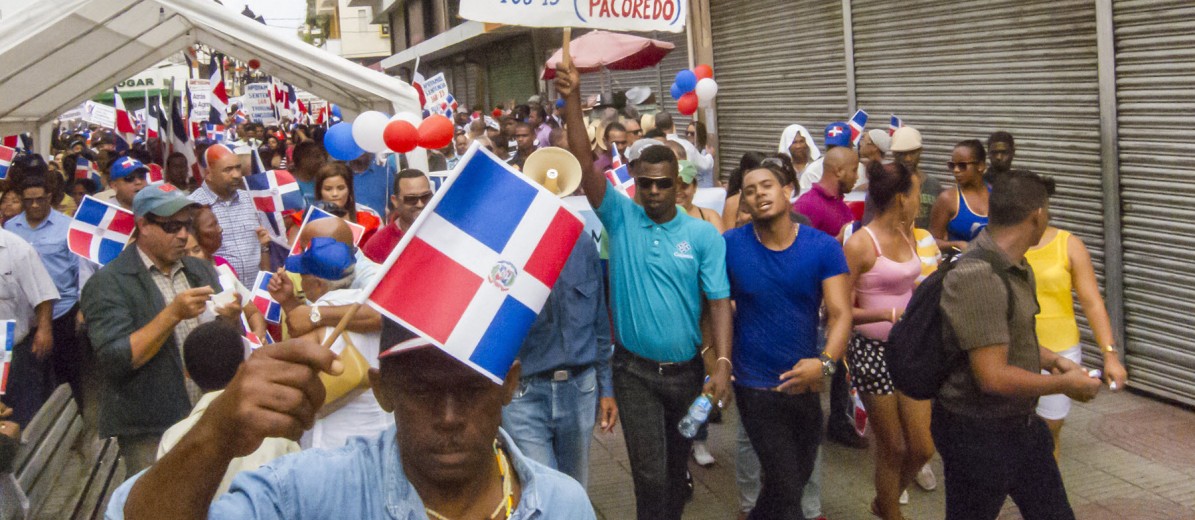Currently, Dominicans of Haitian descent find themselves without a country thanks to a series of policy changes and a Dominican Republic Supreme Court ruling which has rendered the rights of Dominican citizens of Haitian ancestry void. As trade borders open and demand for cheap labor in the D.R. grows, questions of citizenship and how states define their borders continue to arise while simultaneously rendering millions of global citizens stateless and some the object of racially driven laws.
On its face, the Dominican Republic’s new citizenship law, requiring that children born on Dominican soil have at least one Dominican parent to be eligible for citizenship, is not at all suspect. The United Nations has long recognized the right of nations to determine how they manage their borders and define citizenship. However, the Dominican government’s decision to make this law retroactive to those born after 1929, results in what can only be described as an arbitrary and capricious act to potentially strip over 200,000 Dominicans of Haitian ancestry with a rightful claim to their home country.
Haitian foreigners stand to be singled out. D.R. has a long history of recruiting their neighbors from the West to do low wage work like cutting sugar cane, construction and domestic work. The country’s demand for low wage labor over several decades makes Haitians one of the largest groups of foreigners in the Dominican Republic and a clear target of this new law.
Like all countries, when the economy is bad, governments turn to racist propaganda against immigrant workers and their families to gain public support for the rapid deportation, incarceration and overall violations of human rights against non-citizens. This comes as no surprise to American Latinos since the United States has tripled its deportation numbers in the last seven years in the midst of an ongoing and growing economic crisis.
What makes the Dominican Republic’s constitutional change uniquely horrifying is its retroactivity. Whether you agree with the country’s decision to change its laws or not, the government’s decision to unseat four generations of Dominican citizens simply because their parents “might” have been transient workers is untenable considering they were recruited by Dominican employers to begin with. Last I checked no employer was being sanctioned for recruiting low wage workers from Haiti under what I am sure are deplorable working conditions.
No Economic or International Value
What makes the retroactive law even more illogical is that it has absolutely no economic or international value. While the Dominican government recently stated that only 24,000 Dominicans of Haitian ancestry will be impacted, the truth is that the Dominican Republic instructed government employees to withhold proof of citizenship way before the new constitutional ruling was final, leaving Dominicans of Haitian ancestry in an economic and social limbo. Without proof of citizenship, a Dominican citizen is rendered virtually and completely immobile, without the ability to enroll in college, renew a passport, travel or access public services.
While a large number of Haitians coming to the D.R. have been low wage workers, recent advocacy efforts by the Reconoci.do’s #EsoNoSeHaceRD campaign, show second and third generation Dominicans of Haitian descent accomplishing important professional goals as lawyers, advocates, poets, artists and teachers who love the only country they have known — the Dominican Republic. These Dominicans are helping put the only patria they have ever known, on the map through their economic and professional success.
Is It More About Race?
Making racially motivated laws creates big diplomatic problems. Past President Trujillo’s friendly and well documented history with Hitler, his propaganda campaigns and ethnic cleansing of 30,000 Haitians during the 1930s along with the generations of presidents who promoted a culture of hate against blackness is enough for the international community to see this law as racially driven and people on the island and in Diaspora to feel like history is repeating itself. The implications of leaving tens of thousands of Dominicans citizens of Haitian ancestry in statelessness, is enough to raise the alarms of neighboring countries like the US which is home to 1.5 million Dominicans. It also raises the eyebrows of the United Nations and watchdogs like Amnesty International and Refugees International who have maintained a watchful eye on several human rights issues on the island such as the growing sex trafficking industry.
If the Dominican Republic wants to be taken seriously as Latin America grows, then it must begin leading a new and positive conversation on race or get left behind.

